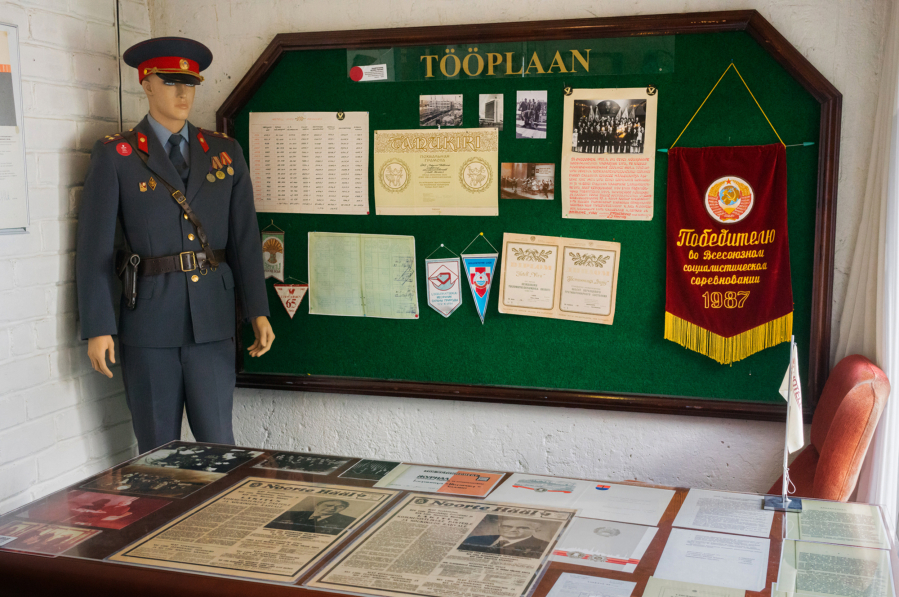TALLINN, Estonia — The sign on the museum door says in Estonian, “There is nothing here,” a contemporary joke about a meandering set of rooms atop what had once been the country’s most modern hotel. These were offices of the KGB, the “Committee for State Security”: the Soviet agency that spied on foreigners and Soviet citizens with equal suspicion, distrust and disdain.
The rooms are now a museum in the Viru Hotel, which still operates in the center of Tallinn, the nation’s charming and historic capital. The hotel has that blocklike, straining-for-modernity look that was emblematic of Soviet architecture of the Cold War but was global in reach. The Viru is now well run and convivial, but it had been completed in 1972 to house Western guests, giving the visitors a bit of comfort largely out of reach of native Estonians and a providing convenient place for the KGB to keep an eye on them.
Estonia is a small nation of 1.33 million inhabitants (that is fewer than San Diego). It borders the chilly Baltic Sea to the west and a glowering Russian Federation to the east. Like Ukraine, it had been invited to into the Soviet Union and held there by force of arms. Around the capital now, many Ukrainian flags fly in Tallinn beside Estonian ones. Even though this country had been an unwilling part of the Soviet Union until the communist empire’s dissolution in 1991, and even though until then Russian was a required course in school, here’s a travel tip for your next visit: If you want to make friends in Tallinn, do not speak Russian.
Donations for Ukraine’s just and brave fight are eagerly encouraged.
To know why that is so, you should consider what it was like back in the day, and a visit to the KGB Museum is an elevator ride to a time machine. You can book your tour online or at the front desk of the hotel; it is a popular activity in Tallinn, so book ahead. I managed to snag a ticket two days in advance for the last tour in English before I had to leave for the airport.



